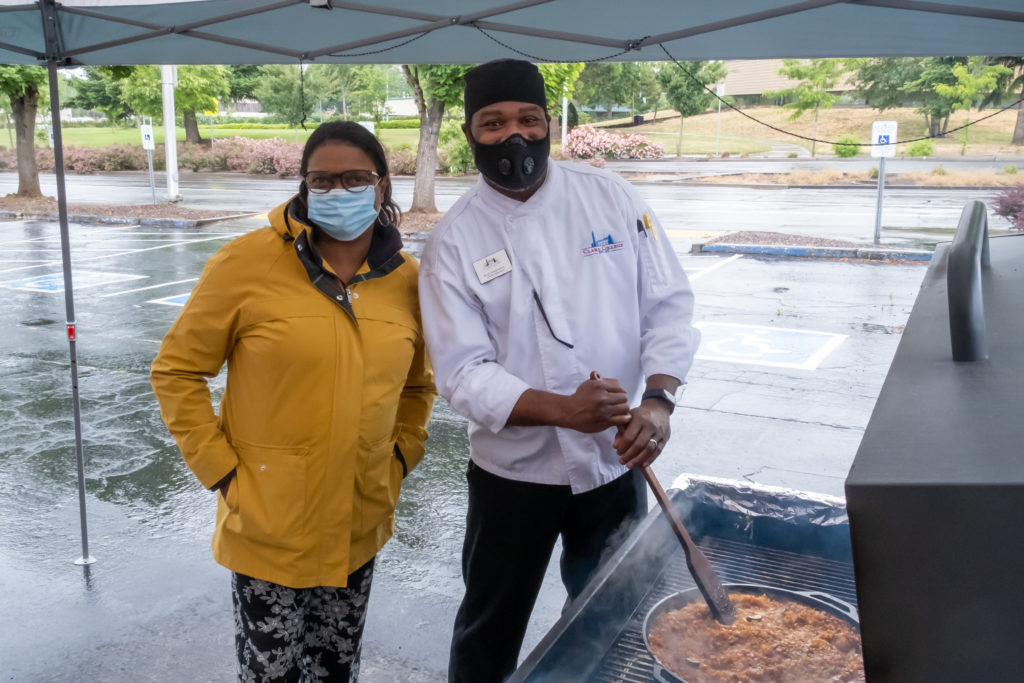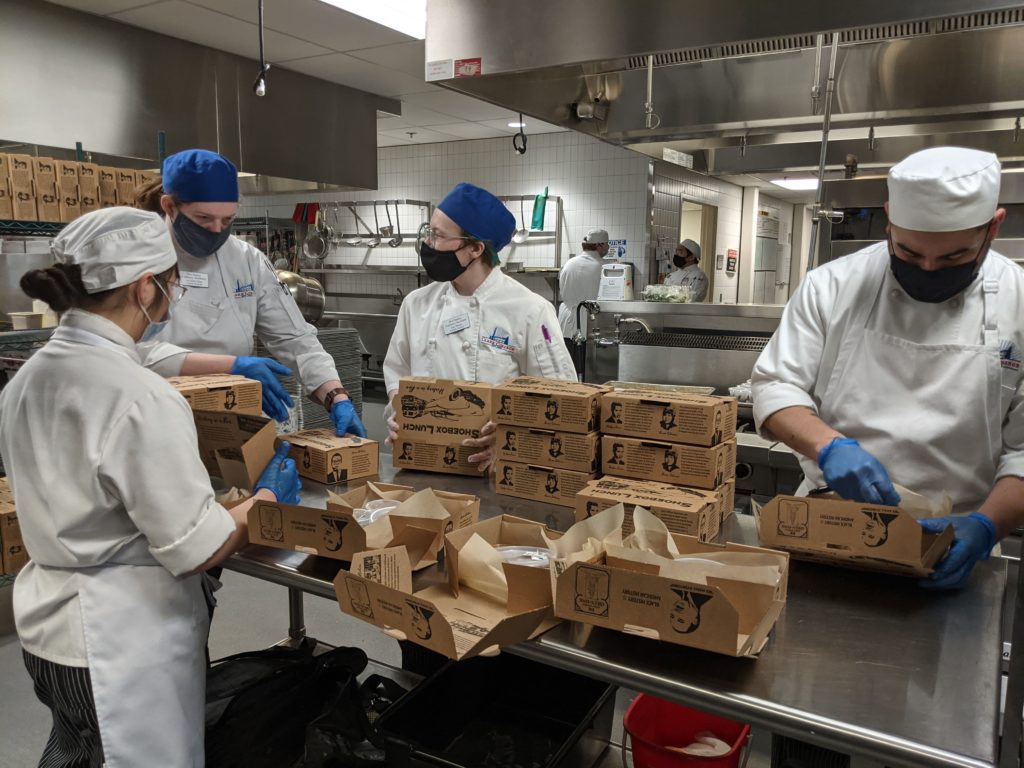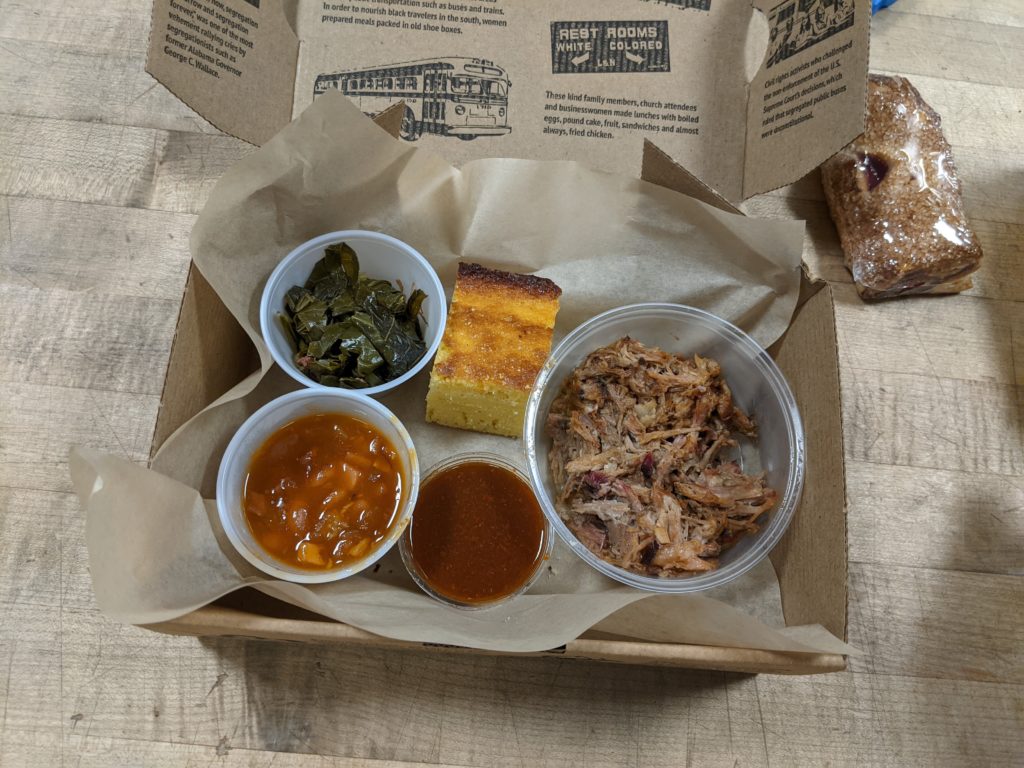College hosts drive-through cookout honoring the emancipation of Black enslaved people

Clark College celebrated the emancipation of Black enslaved people with its inaugural Juneteenth Drive-Through Cookout on Friday, June 11. The event was organized by the college’s Office of Diversity, Equity & Inclusion and culinary programs. Clark College’s McClaskey Culinary Institute and ODEI provided 100 boxed lunches for students.
In an email to the college community, Rashida Willard, Vice President of Diversity, Equity & Inclusion, explained the significance of Juneteenth, which is also known as Emancipation Day and Freedom Day: “On June 19, 1865, Union soldiers arrived in Galveston, Texas with news that the Civil War had ended, and that Black slaves were now free, nearly two and a half years after President Abraham Lincoln issued the Emancipation Proclamation on January 1, 1863. Many celebrate this holiday honoring Black culture through social gatherings, cookouts, and time with family.”

Cuisine instructor Earl Frederick said, “Barbecue is recognized as a Black contribution to American culture. It was slaves who passed through the Caribbean, cooking animals over pits on sticks. This style of cooking called barbacoa translates now into what we know as Southern barbecue. They also picked up seeds from hot peppers in the Caribbean, which became an important flavoring for the pork in the South.”
Cuisine students made smoked turkey, baked beans, collard greens and cornbread. Students in Professional Baking and Pastry Arts made individual hand pies for dessert. Clark’s students made all the food except for barbecued pork, which was donated by Donnie Vercher, owner of Daddy D’s Southern Style BBQ. (Vercher’s daughter, Ramona Vercher, is a Clark College alumna and recipient of the 2013-14 Community College President’s Award.) On the morning of the event, cuisine students were busy in the kitchen packing 100 lunches in boxes highlighting significant people and events in Black history.
Students had signed up in advance to receive the lunches. During the event, students drove into the parking lot west of Tod and Maxine McClaskey Culinary Institute, rolled down their window and were handed a boxed lunch from a cuisine student.
Despite persistent rain, it was a party. Deejay Mark Kernell played Earth, Wind and Fire’s “September” as he spun what he called “good ‘70s and ‘80s R&B, backyard barbecue music.”
Nearby, Clark College President Karin Edwards chatted with Frederick, who was busy stirring a pot of Caribbean-style paella at the wood-fired grill. A pot of gumbo simmered alongside it.
Frederick said his maternal grandmother, a sharecropper from North Carolina, told him stories about the significance of barbecue.

“My grandmother told me that barbecue is something that Blacks and whites in the South share,” he said. “When tobacco was harvested in the fall, it was all-hands-on-deck with Blacks and whites working together doing the harvest.”
Workers hung tobacco leaves in tobacco barns that have slats to let air through. To prevent spoilage, this work had to happen quickly, so a big oak fire was built to cure, dry and smoke the tobacco. Throughout the night, workers stoked the fire, which accumulated hot coals.
Frederick explained, “The tradition developed to roast a pig using those hot coals. People dug a hole in the ground, put hot coals in the bottom of the pit, put a grate over the coals, and put a butchered pig on the grate to slowly cook the pig. Everybody—black and white—ate the pig together. Something that didn’t happen any other time.”
Next year when Clark College holds its second annual event, Juneteenth will be a state holiday, thanks to legislation passed in May. The law will go into effect in 2022.












